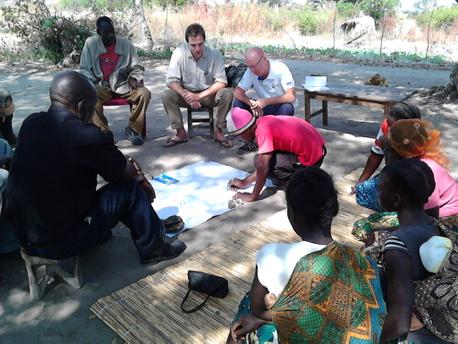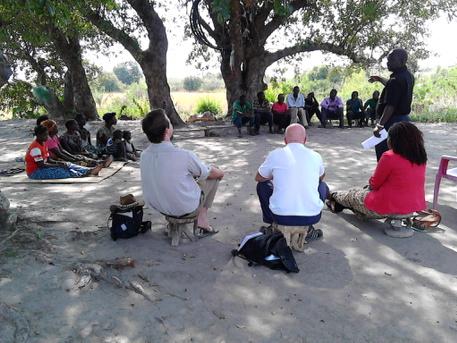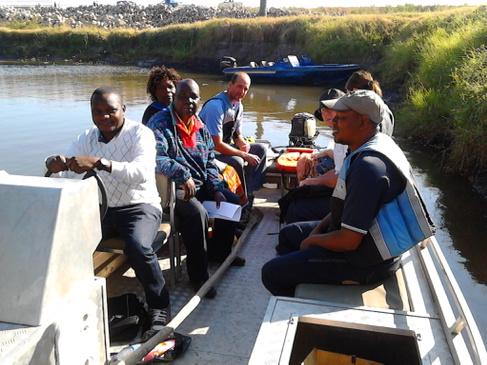 |
| Fishing community drawing a map of their fishing area, Tangatanga fishing village, Senanga , Zambia |
 |
| Research team discussing with fishing community at Tangatanga fishing village on the banks of Zambezi River, Mongu. |
desalting the fish in order to make it palatable. To address this, one of the groups involved in the project and traders based in local markets are creating awareness of desalting methods in order to develop the local market, and thereby provide a new outlet for fishermen and processors in the area.
One option is to develop packaging for salted fish products which includes desalting instructions;
 |
| Heading for field work at 3 locations. CultiAF project team from Fisheries,World Fish,University of Malawi,NAIS . |
This project is funded by the Cultivate Africa’s Future Fund Cultivate Africa’s Future Fund (CultiAF). It is a CA$15 million joint program of the Australian International Food Security Research Centre of the Australian Centre for International Agricultural Research and Canada’s International Development Research Centre. CultiAF supports research to achieve long-term food security in Eastern and Southern Africa.
Source: CultiAf Press Release 29/09/2015. Southern Africa: Improving Fish Post-Harvest Management and Marketing in Malawi and Zambia
 Related:
Related:15th September 2015. Addis Ababa. The FAO organised the East Africa Consultation Workshop on improving small-scale fisheries (SSF) in the context of food security and poverty eradication. This event was organized by the FAO Sub-regional Office for Eastern Africa (SFE) in collaboration with FAO HQ Fisheries Division.
The overall objective of the workshop was to facilitate the understanding of the principles of the SSF Guidelines and their application in order to support sustainable small-scale fisheries in the region; and, it is in response to direct demand from the region, and within the evolving framework of a Global Assistance Programme to support the promotion and application of the Securing Sustainable Small-Scale Fisheries.
More informations:

No comments:
Post a Comment